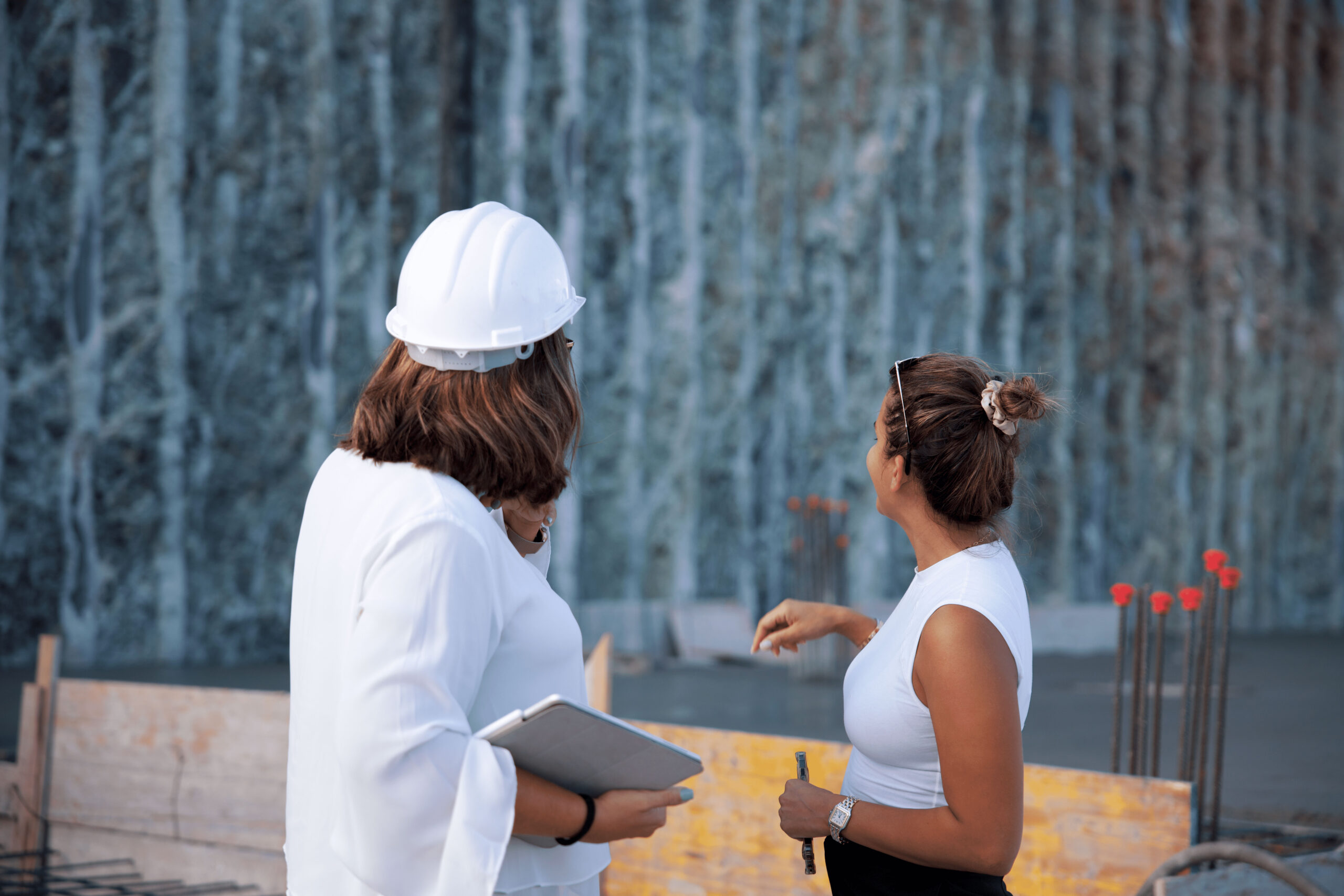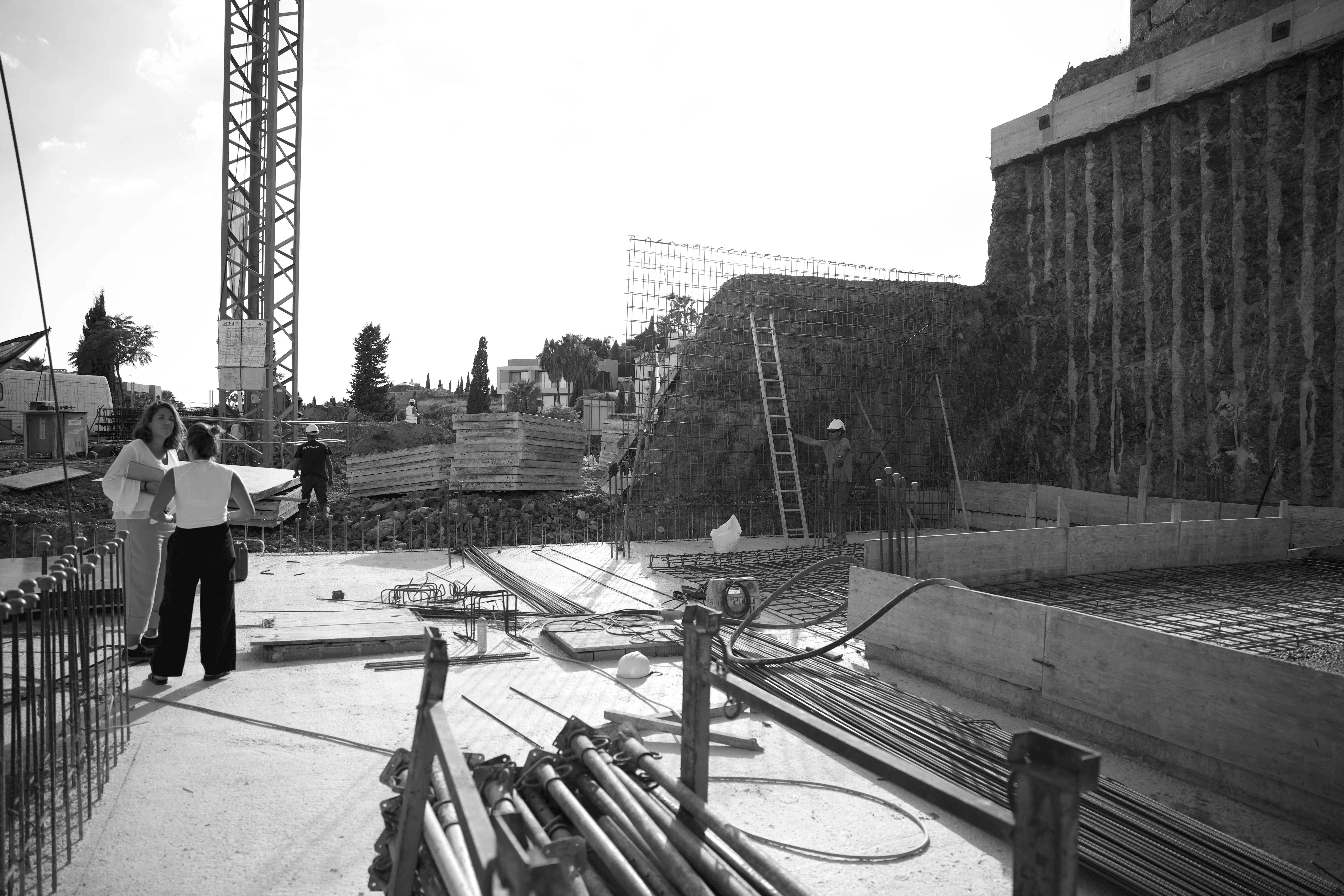Luxury construction is a world of elegance and excellence where every detail matters. Behind every dream villa and high-end residence, there is a dedicated team of professionals working tirelessly to make clients’ dreams come true. At the heart of this process is Rocío, CEO of Marba Homes, a Project Manager passionate about construction since childhood, who has forged a career in the industry, combining studies in Spain, Italy and England. Her approach as a Project Manager focuses on transparency, agile decision-making, and building strong teams. In this context, we will explore her journey and insights into construction and the role of the Project Manager in successful projects, she has dedicated her career to bringing clients’ dreams to reality.
How did you become involved in the world of construction?
Rocío: From an early age, I was deeply interested in understanding how the construction of buildings took place and how these structures could be brought to life. This innate curiosity accompanied me from my childhood.
As I grew up, my interest particularly focused on large infrastructures around me or being built near my town, such as hospitals, shopping centres, and large buildings. I marvelled at how, in just a year or a year and a half, seemingly empty land could transform into a purposeful building.
This passion and determination led me to make a clear decision about my academic education. I started my studies in Building Engineering at the University of Granada, where I focused on the control, planning, and execution of works.
Then, during my final academic year, I had the opportunity to complete my final project at the Polytechnic University of Turin. This project gave me new perspectives and experiences in the field of construction, as well as opportunities that I hadn’t had at the University of Granada or that were approached differently.
What led you to explore opportunities abroad, specifically in England?
Rocío: Upon completing my degree, I made the decision to move to England, with a clear determination to continue my exploration and discovery in the field of construction beyond the borders of Spain. I packed my bags with enthusiasm and settled in England, where I spent a total of four years.
It was in England, through my jobs at various engineering companies, that I had the opportunity to explore different facets of the construction industry. I worked on road construction, bridges, buildings within airports, public construction projects, and finally, residential construction, where I felt most comfortable and where I could interact more directly with clients. While these were smaller-scale projects compared to public works, they allowed me greater influence and fewer legislative restrictions.
Therefore, during my final year in England, I decided to focus even more on residential construction. With the experience gained in England and a clearer understanding of my preferences in the sector, I began to analyse the construction market in Spain and identify locations where this sector was more developed.

How did you decide to establish yourself in Marbella, Spain?
Rocío: With the experience I gained in England, I saw an opportunity to apply my knowledge in luxury construction in Spain. Of course, Marbella holds a prominent place in Spain and even in Europe, and I decided to bet on this city. I left England behind and moved to Marbella, bringing with me all my experience and the language skills necessary to apply it to projects in this area. I was fortunate to join a company specializing in the construction and execution of luxurious villas, assuming the role of Project Manager and participating in projects that exceeded twenty million euros in high-level private works. This experience allowed me to gain deep knowledge of the dynamics and requirements of this type of project.
It was at this point that I appreciated the importance of applying the experience I had gained in England, where work is done more agilely and digitally, compared to the methodology in Spain. The methodology was still largely based on printed documentation and independent decision-making between the construction and design team.
Here, I realized how crucial it is for owners to make quick decisions to move forward and meet extremely demanding deadlines.

Let’s talk about the importance of the Project Manager role in construction. What do you consider most crucial in your work?
Rocío: I believe the Project Manager is an underestimated but essential role in any construction project. We play a crucial role in managing the relationships between the design team, the construction company, and other essential elements in the project. The client, who makes the final decisions in each project, is the most important figure. In my opinion, transparency and teamwork are fundamental. It’s essential for the design team and the construction company to work hand in hand, and for the client to be satisfied with the entire team involved in bringing their project to life. Furthermore, harmony among all parties is vital. That’s my primary function.
At what point do you think it’s important to incorporate a Project Manager into a project, and why?
Rocío: I believe the Project Manager should be part of the project from the very beginning, even before the client has finalized the project definition, acquired land, or even selected an architect. To me, it’s of vital importance to provide guidance to the client during the land acquisition phase. In general, most clients focus on aspects like the land size, the number of available square meters, location, and the view, and, of course, whether the budget fits within their limits. However, a critical aspect is often overlooked: the nature of the land.
It’s crucial to understand that having an idea of the project is not enough if we haven’t conducted a comprehensive study of the land. In most cases, lands on the Costa del Sol have undergone artificial modifications, such as nearby excavations that have altered their original topography. Therefore, it’s essential to recognize that any project must be based on a solid understanding of the land, which is frequently a significant challenge. A detailed study of the land allows us to avoid significant problems and disappointments during the project execution.

How can a Project Manager help in the land selection process?
Rocío: First and foremost, by working closely with a trusted geotechnical engineer. Secondly, by providing guidance to the client regarding the surrounding properties, nearby projects, and sharing previous experiences in the area. Once the land has been clearly defined, conducting an in-depth study becomes crucial.
Then, it’s time to search for the design team or architects, where conducting a second study becomes an essential part to ensure the utmost accuracy and suitability of our analysis for the project they are designing. Once we have advised the client on the design, material selection, and project layout, we will work closely with the design team.
Subsequently, we will proceed to seek out the best option among construction companies. For us, it’s not just about selecting trustworthy construction companies with a track record of quality and a good reputation, but also choosing those with a high-quality human team.
What would you say is your main focus in project management, and what message would you like to convey to your clients?
Rocío: The fundamental message I always seek to convey to my clients can be summarized in three key aspects: first and foremost, transparency in project management, in meeting deadlines, in project execution, and above all, in presenting clear and accurate prices and costs. To achieve this, I collaborate closely with the design team to ensure that the project not only meets the spatial and dimensional needs of the client but also their economic objectives.
Secondly, my most significant role, from the client’s perspective, is the careful comparison and selection of the appropriate construction company and suppliers required for our project.
Finally, but no less important, is the importance of forming a cohesive team with all these external actors involved in the project. Synergy among all of us is essential for achieving success.
We take this opportunity to inform you that you can also follow us on Instagram and LinkedIN.




